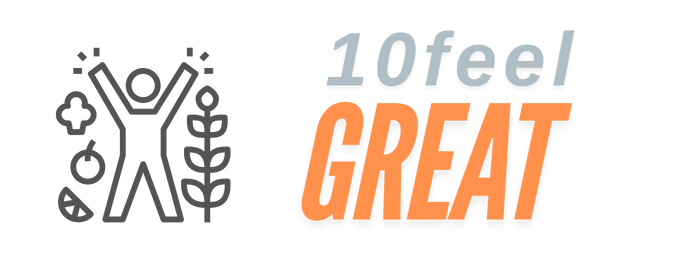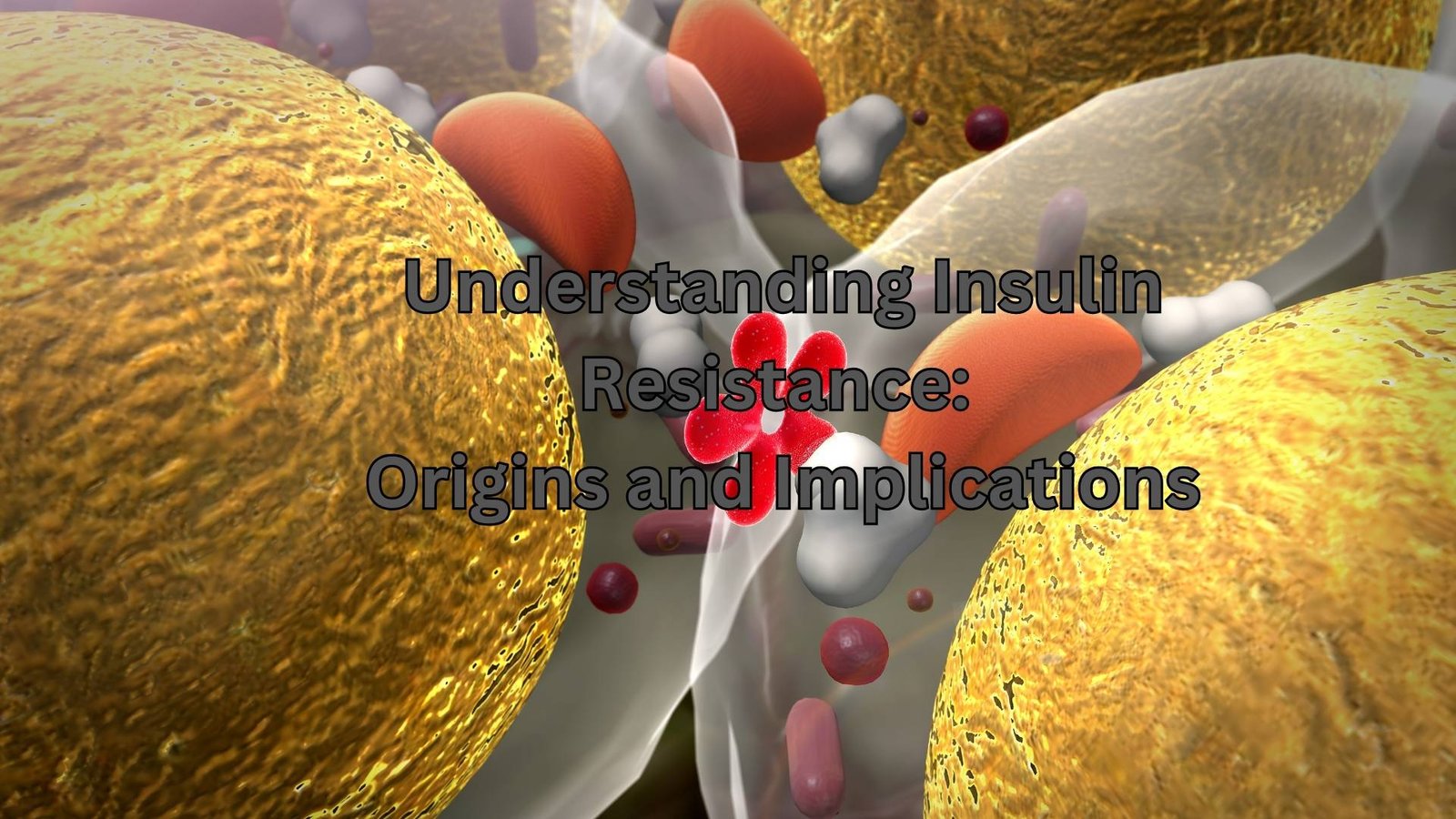Insulin resistance is a critical health issue affecting millions worldwide. In this blog, we will explore its origins, causes, and the implications for metabolic health, providing a comprehensive understanding of this complex condition.
🌟 Introduction to Insulin Resistance
Insulin resistance is a condition where cells in the body do not respond effectively to insulin, leading to elevated blood sugar levels. Understanding this phenomenon is crucial for managing and preventing various metabolic disorders. It can be a precursor to serious conditions such as type 2 diabetes and cardiovascular diseases.
What Happens in Insulin Resistance?
In a healthy individual, insulin facilitates the uptake of glucose into cells, providing energy. However, in insulin resistance, this process is impaired. The body compensates by producing more insulin, which can eventually lead to higher insulin levels in the blood, known as hyperinsulinemia.
Key Takeaways
- Insulin resistance affects glucose metabolism.
- It can lead to chronic high blood sugar levels.
- Understanding its mechanisms is vital for health management.
🔍 The Importance of Understanding Insulin Resistance
Grasping the concept of insulin resistance is essential for several reasons. First, it provides insights into the underlying causes of metabolic diseases. Second, it empowers individuals to take proactive steps in managing their health.
Metabolic Health Implications
Insulin resistance is often associated with metabolic syndrome, which includes a cluster of conditions like hypertension, high blood sugar, and abnormal cholesterol levels. Recognizing these associations can lead to early interventions.
Prevention Strategies
- Regular physical activity can enhance insulin sensitivity.
- A balanced diet low in refined sugars supports metabolic health.
- Monitoring blood sugar levels can help track insulin resistance.
📊 Recent Research Insights
New studies continue to shed light on insulin resistance, revealing its complex nature. Recent research highlights the interplay between diet, inflammation, and hormonal responses.
Emerging Findings
One significant finding is the impact of high-sugar diets on insulin sensitivity. Research indicates that excessive sugar intake can lead to diminished insulin response, contributing to insulin resistance over time.
Research Implications
- Dietary choices play a crucial role in metabolic health.
- Understanding the biochemical pathways involved can lead to targeted therapies.
- Continued research is essential for developing effective prevention strategies.
🔑 Defining Insulin Resistance
Insulin resistance can be defined through various lenses, including cellular, hormonal, and metabolic perspectives. At its core, it is a condition where insulin’s effectiveness in promoting glucose uptake is compromised.
Cellular Perspective
From a cellular standpoint, insulin resistance occurs when insulin receptors on cells become less responsive. This results in reduced glucose uptake and increased blood sugar levels.
Metabolic Perspective
Metabolically, insulin resistance is linked to a state of chronic inflammation and altered fat metabolism. These changes can lead to a cascade of health issues, emphasizing the need for comprehensive understanding.
⚙️ Primary vs. Secondary Causes of Insulin Resistance
Insulin resistance can be categorized into primary and secondary causes. Primary causes are directly linked to biological mechanisms, while secondary causes are often influenced by external factors.
Primary Causes
Primary causes include inflammation, hormonal imbalances, and genetic predispositions. These factors independently contribute to the development of insulin resistance.
Secondary Causes
Secondary causes may arise from lifestyle choices such as diet, physical inactivity, and chronic stress. These can exacerbate underlying primary causes, creating a cycle of worsening insulin sensitivity.
🔥 Three Primary Causes of Insulin Resistance
Understanding the primary causes of insulin resistance is crucial for effective prevention and management. The three main contributors are inflammation, stress, and hormonal imbalances.
Inflammation as a Primary Cause
Chronic inflammation has been shown to directly impair insulin signaling pathways. Conditions such as obesity and autoimmune diseases often exhibit elevated inflammatory markers, correlating with increased insulin resistance.
Stress and Its Impact on Insulin Resistance
Stress triggers the release of hormones like cortisol and epinephrine, which can elevate blood sugar levels. This hormonal response makes it difficult for insulin to perform its function, leading to insulin resistance.
Hormonal Imbalances
Hormonal changes, particularly involving insulin, glucagon, and leptin, can disrupt normal metabolic processes. These imbalances can arise from various factors, including obesity, sleep disorders, and aging.
📈 Chronically Elevated Insulin Levels
Chronically elevated insulin levels, a condition known as hyperinsulinemia, can significantly contribute to insulin resistance. When insulin remains consistently high, the body’s cells become less responsive to its effects. This resistance leads to higher blood sugar levels, creating a vicious cycle that exacerbates metabolic issues.
Frequent consumption of high-carbohydrate meals, especially those rich in sugars, leads to repeated spikes in insulin. Over time, the pancreas struggles to keep up with the demand for insulin, resulting in elevated levels in the bloodstream. This chronic state of high insulin not only affects glucose metabolism but also influences fat storage and hunger signals.
Consequences of Elevated Insulin
- Increased fat storage, particularly visceral fat.
- Heightened risk of developing type 2 diabetes.
- Potential for cardiovascular issues due to altered lipid profiles.
🔍 Exploring Secondary Causes of Insulin Resistance
While primary causes of insulin resistance encompass factors like inflammation and hormonal imbalances, secondary causes often stem from lifestyle choices. These choices can exacerbate underlying conditions and contribute to the overall picture of insulin resistance.
Understanding these secondary causes is crucial for effective intervention strategies. By addressing lifestyle factors, individuals may improve their insulin sensitivity and metabolic health.
Key Secondary Causes
- Dietary habits, particularly high sugar and refined carbohydrate intake.
- Physical inactivity leading to decreased insulin sensitivity.
- Chronic stress that can disrupt hormonal balance.
🧪 The Role of Uric Acid
Uric acid has emerged as a significant factor in the development of insulin resistance. Elevated levels of uric acid, often linked to diets high in fructose, can trigger inflammatory pathways that impair insulin signaling.
Research shows that increased uric acid levels correlate with heightened insulin resistance in various models, including human studies. By managing uric acid levels, individuals may potentially improve their insulin sensitivity and overall metabolic health.
Mechanisms of Uric Acid Action
- Uric acid promotes inflammation, contributing to insulin resistance.
- It can disrupt normal metabolic processes, leading to impaired glucose uptake.
- Reducing uric acid levels may enhance insulin sensitivity.
🍽️ Unique Causes: Starvation and Insulin Resistance
Interestingly, starvation can also lead to a state of insulin resistance, albeit through different mechanisms than those seen in obesity. In this context, the body, deprived of adequate energy, undergoes physiological changes that increase insulin resistance.
The body reacts to starvation by conserving energy and reducing insulin levels. However, this state can lead to a paradoxical increase in insulin resistance, particularly as the body begins to utilize lean muscle and fat stores for energy.
Starvation vs. Fasting
- Starvation involves prolonged energy restriction, leading to muscle breakdown.
- Fasting, on the other hand, can be a controlled method of energy restriction that may enhance insulin sensitivity.
- Understanding the differences is crucial for effective dietary strategies.
🏋️♀️ The Role of Fat Cells in Insulin Resistance
Fat cells, particularly when hypertrophied, play a pivotal role in the development of insulin resistance. As these cells enlarge, they begin to exhibit reduced sensitivity to insulin, contributing to higher insulin levels in the blood.
Hypertrophic fat cells can also release pro-inflammatory cytokines, further exacerbating insulin resistance. This creates a detrimental cycle where increased fat storage leads to more insulin resistance, which in turn encourages further fat accumulation.
Factors Influencing Fat Cell Behavior
- Elevated insulin levels signal fat cells to grow and store more energy.
- Excessive caloric intake fuels the expansion of fat cells.
- Pro-inflammatory signals from hypertrophied fat cells impair insulin signaling.
🌾 Contributing Factors: Seed Oils and Linoleic Acid
Seed oils, particularly those high in linoleic acid, have garnered attention for their potential role in insulin resistance. Evidence suggests that diets rich in these oils may contribute to metabolic dysfunction.
While the impact of seed oils on insulin resistance is still being researched, preliminary findings indicate that they can influence fat cell behavior and promote inflammation, both of which are critical in the development of insulin resistance.
Impacts of Seed Oils
- Consumption of seed oils may impair fat cell function.
- Linoleic acid can promote inflammation, worsening insulin resistance.
- Further research is needed to fully understand the mechanisms involved.
⚠️ The Consequences of Insulin Resistance
The ramifications of insulin resistance extend far beyond elevated blood sugar levels. This condition is associated with a range of serious health issues, including metabolic syndrome, type 2 diabetes, and cardiovascular disease.
As insulin resistance progresses, individuals may experience increased fat storage, particularly in the abdominal area, which is closely linked to a higher risk of chronic illnesses.
Health Risks Associated with Insulin Resistance
- Increased risk of type 2 diabetes.
- Higher likelihood of developing cardiovascular diseases.
- Potential for fatty liver disease and other metabolic disorders.
FAQ
What is insulin resistance?
Insulin resistance is a condition where the body’s cells do not respond effectively to insulin, resulting in elevated blood sugar levels.
What causes insulin resistance?
Causes include inflammation, excess body fat, hormonal imbalances, and lifestyle factors such as diet and physical inactivity.
How can insulin resistance be improved?
Improving insulin resistance can often be achieved through lifestyle changes such as adopting a balanced diet, engaging in regular physical activity, and managing stress levels.
Is insulin resistance reversible?
Yes, with appropriate lifestyle modifications, insulin resistance can often be reversed or improved significantly.
What is the role of diet in insulin resistance?
A diet low in refined sugars and high in whole foods can enhance insulin sensitivity and help manage insulin resistance effectively.

